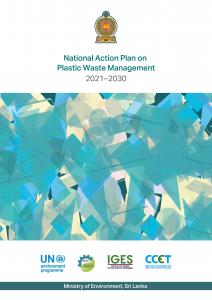Plastics are part of everyday life for most of the people in the world and it is also used extensively in the industry. Globally about 368 million tonnes are produced annually where Asia accounts for more than half of the global plastic production. Sri Lanka currently imports virgin plastic raw materials for varying applications which amounts to 300,000 MT/annum. According to our estimate, total plastic waste generation in Sri Lanka is about 938 MT/D where about 32% (about 300 MT/D) is collected and only about 4% (about 38 MT/D) is recycled. Out of 68% (about 638 MT/D) of uncollected plastic waste, about 44 % (about 410 MT/D) is openly burnt and about 24% (about 217 MT/D) is disposed to the land and waterways polluting the environment. The inflow of plastic packaging including unaccounted packaging of other goods is increasing. Similarly, polythene bags and large amounts of single-use plastics have also become a key factor contributing to plastic pollution in Sri Lanka.
Considering the need for addressing plastic pollution in Sri Lanka, the National Action Plan on Plastic Waste Management (NAPPWM) for Sri Lanka is developed in line with the waste hierarchy and the national policies of the government based on the policy statement “Vistas of Prosperity”, as well as Sustainable Environmental Policy. Based on the strategic directions guided by national policy, relevant, measurable, attainable time-bound goals along with cross-cutting issues were determined in the NAPPWM through the series of consultative meetings and workshops inviting relevant stakeholders on plastics in Sri Lanka.
The government of Sri Lanka hopes that the NAPPWM will pave the way for better plastic waste management in Sir Lanka.

